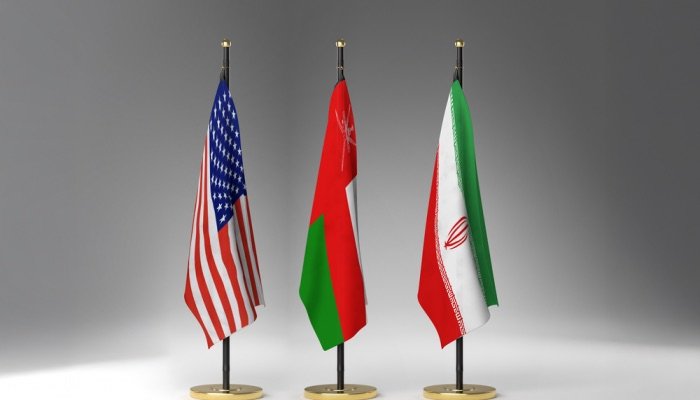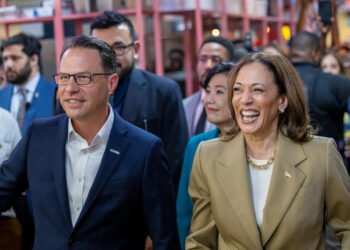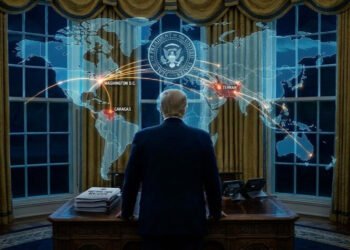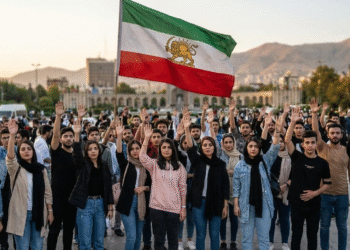“Editor-in-Chief: SHAPOUR-T”
In the turbulent theater of Middle Eastern geopolitics, Oman has long maintained a rare stance: neutrality. Tucked in the southeastern corner of the Arabian Peninsula, bordering Saudi Arabia, the UAE, and Yemen, Oman holds a unique position that transcends its modest size. With coastlines stretching along the Arabian Sea and the Sea of Oman, and with the Musandam exclave perched at the Strait of Hormuz, Oman sits astride one of the world’s most vital energy chokepoints.
Roughly one-third of global liquefied natural gas and 25% of global oil exports pass through the Strait of Hormuz. Oman’s proximity and partial control over this strategic waterway give it disproportionate geopolitical weight — and a vested interest in regional stability.
A Kingdom of Calm in a Restless Region
Oman is a hereditary absolute monarchy, and its political calm stands in stark contrast to its often-volatile neighbors. From 1970 to 2020, Sultan Qaboos bin Said ruled with a steady hand, overseeing transformative modernization and cultivating a foreign policy of non-intervention. His death in 2020 marked a rare moment in Gulf politics: a peaceful transition of power. His cousin, Sultan Haitham bin Tariq, assumed the throne smoothly, pledging to preserve Qaboos’ legacy of peaceful coexistence and balanced diplomacy.
Global peace indices consistently rank Oman as one of the most stable countries in the Middle East — a factor that has enhanced its credibility as a diplomatic go-between.
Energy Wealth, Neutral Ambitions
Oman’s economy remains heavily reliant on oil and gas, which account for about 30% of GDP and over 60% of government revenue. This dependence makes Oman vulnerable to regional conflict — and reinforces its commitment to neutrality.
To safeguard its economic lifeline, Oman has long avoided taking sides in regional disputes. Instead, it has opted for constructive engagement, maintaining open channels with both Western powers and regional adversaries. At the same time, Muscat is actively pursuing Vision 2040 — a national plan to diversify the economy by investing in tourism, renewable energy, manufacturing, and technology.
This economic transformation strategy, coupled with a stable political climate and neutral diplomacy, has positioned Oman as a safe haven for foreign investors — and a trusted host for sensitive negotiations.
The Gulf’s Quiet Diplomat
Since the reign of Sultan Qaboos, Oman has consistently steered clear of regional power struggles. This posture has earned it the nickname “the Switzerland of the Gulf.” The Sultanate’s simultaneous friendly relations with both Tehran and Washington have placed it in a unique position to mediate.
Oman has played a behind-the-scenes role in some of the most critical diplomatic moments of recent decades. In the late 2000s, it quietly facilitated backchannel talks between Iran and the United States over Iran’s nuclear program. By 2013, Muscat hosted preliminary technical discussions that laid the groundwork for the 2015 Joint Comprehensive Plan of Action (JCPOA). Iran’s former foreign minister Mohammad Javad Zarif acknowledged Oman’s contribution, calling it “constructive and positive.”
Oman has also served as a venue for prisoner swaps and humanitarian negotiations between the two adversaries — a testament to the trust both sides place in Muscat’s discretion and integrity.
A Friendship Forged in War
The deep trust between Iran and Oman traces back to the 1970s, during Oman’s Dhofar Rebellion. As Marxist insurgents threatened the young Sultan Qaboos’ rule, he turned to Iran for help. Mohammad Reza Shah, wary of communist influence near the Strait of Hormuz, dispatched more than 15,000 Iranian troops to help quash the uprising.
The military intervention was decisive. Qaboos later credited Iran for saving his kingdom, reportedly saying he owed his throne to Tehran’s support. The memory of that alliance endures — even after Iran’s 1979 revolution — and continues to inform the cordial relations between the two nations.
A Bridge in an Age of Division
Oman’s enduring neutrality, historical ties to both Iran and the West, and strategic location have made it an indispensable, if understated, player in regional diplomacy. As the U.S. and Iran continue to navigate a landscape riddled with mistrust, sanctions, and political brinkmanship, the Sultanate of Oman remains a quiet but potent facilitator of dialogue.
In a region where hard power often dominates headlines, Muscat’s soft diplomacy may yet prove to be the most resilient and necessary tool for peace.

 English
English



























































